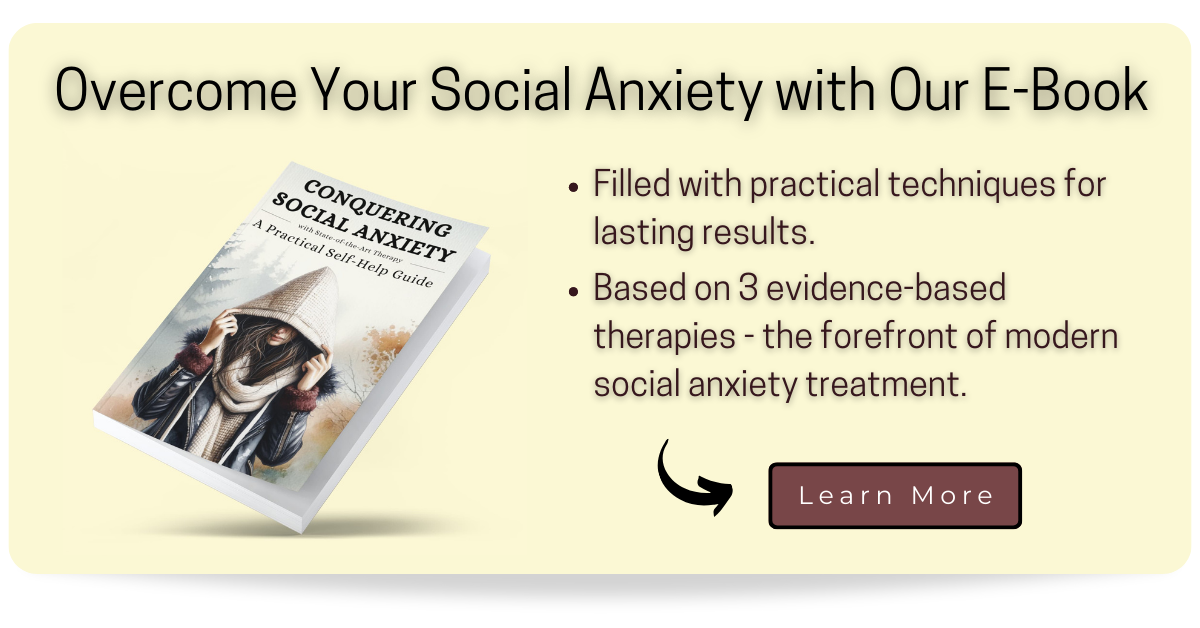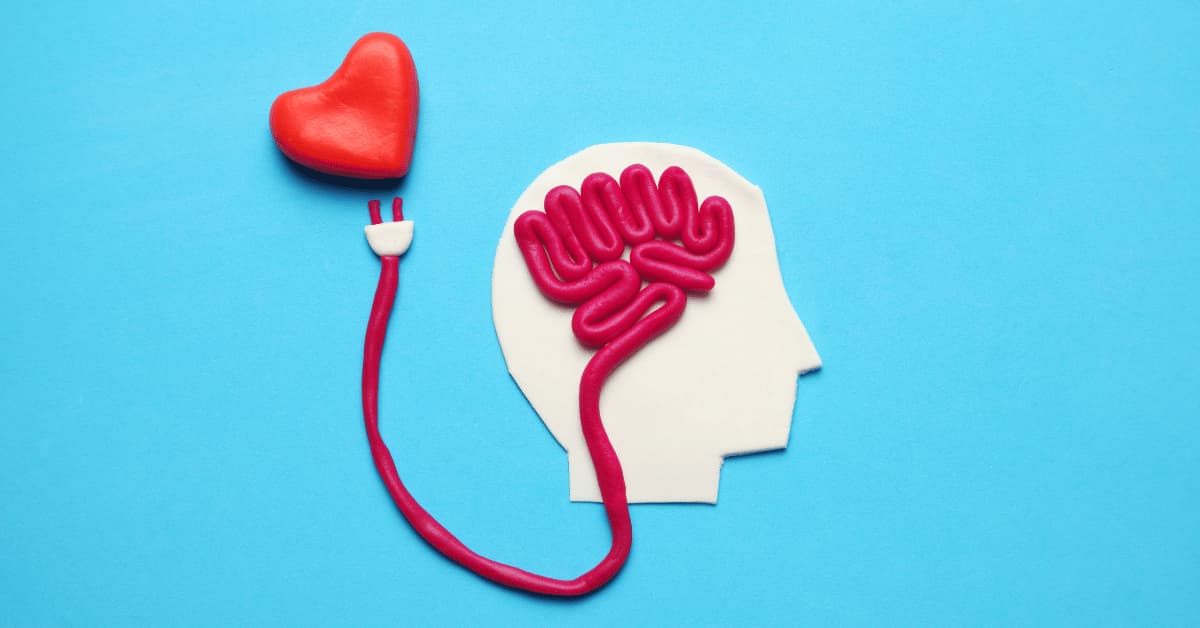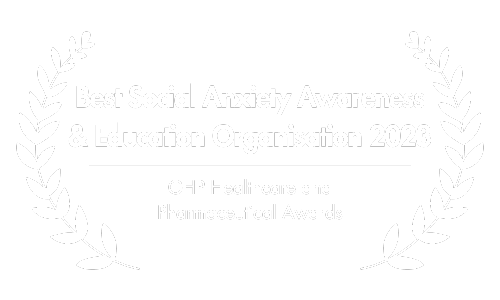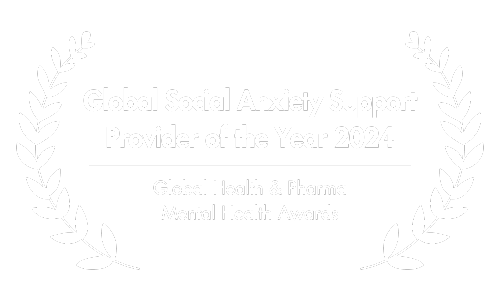From Fear to Freedom: A Full Guide to SNRIs for Social Anxiety Relief
This article features a suggestion for an online psychiatry service, where certified mental health experts can assess social anxiety, offer diagnoses, and prescribe medications if appropriate. By using this link, you may receive a significant discount on the service, and we will earn a commission.

Social anxiety is a significant emotional hurdle faced by countless individuals on a daily basis.
The fear of social interactions, often accompanied by the weight of judgment, can lead to a range of distressing symptoms like rapid heartbeat, sweating, and a strong urge to avoid triggering situations (Moutier & Stein, 1999).
Effectively managing social anxiety is essential not just for emotional well-being but also for overall quality of life.
While psychotherapy, self-help strategies, and support networks form the bedrock of treatment, medication can also play a pivotal role in mitigating the impact of social anxiety (Williams et al., 2020).
Among the various medication options available, Serotonin and Norepinephrine Reuptake Inhibitors, often referred to as SNRIs, have emerged as noteworthy contenders.

SNRIs offer a unique approach to tackling social anxiety by targeting the interplay between two vital neurotransmitters: serotonin and norepinephrine.
Understanding SNRIs’ role in treating social anxiety can yield valuable insights for effectively navigating the challenges of social apprehension.
In this article, we’ll delve into the world SNRIs for social phobia – how they work, their effectiveness in addressing social anxiety, potential benefits, and essential considerations.
While this article offers valuable knowledge about managing social anxiety, it’s crucial to consult a qualified psychiatrist for medication options, ensuring personalized assessment and guidance.
Let’s get started.

A. Understanding SNRIs
SNRIs operate within the delicate balance of brain chemistry. These medications prevent the rapid reabsorption (reuptake) of two key neurotransmitters: serotonin and norepinephrine.
Mechanism of Action
SNRIs extend the presence of these neurotransmitters between nerve cells, creating an environment where serotonin and norepinephrine can exert prolonged effects, promoting mood regulation and reducing anxiety.
The Role of Serotonin and Norepinephrine
Serotonin, often dubbed the “feel-good” neurotransmitter, plays a crucial role in stabilizing mood. Norepinephrine, also known as noradrenaline, on the other hand, influences the body’s “fight or flight” response, impacting alertness.

The interaction between these neurotransmitters shapes mood and anxiety levels. SNRIs, by maintaining higher levels of both, contribute to a more balanced emotional state, offering potential relief from social anxiety.
Exploring Other Treatment Avenues
Before delving deeper into SNRIs for social anxiety, it’s essential to acknowledge that they represent just one facet of the treatment spectrum. Other medications, such as Selective Serotonin Reuptake Inhibitors (SSRIs), benzodiazepines, and beta-blockers, each offer unique mechanisms and considerations.
For a more comprehensive understanding of these treatment avenues and their significance in managing social anxiety, we offer dedicated articles that delve deeper into each option.
To gain a comprehensive understanding of SSRIs, the most frequently prescribed medications for social anxiety, simply click here.
For a comprehensive understanding of MAOIs, which share certain similarities with SNRIs, you can access our article by clicking here. Similarly, our dedicated article on RIMAs, a safer alternative to MAOIs, is available for you to read by clicking here.

You can also delve into the realm of benzodiazepines for social anxiety, understanding both their short-term benefits and associated risks by clicking here.
And lastly, you can discover how beta-blockers can effectively alleviate the physical symptoms of social anxiety in our detailed article, accessible by clicking here.

B. The Role of SNRIs in Social Anxiety Treatment
Managing social anxiety is a multifaceted endeavor, and SNRIs have become a noteworthy tool in this journey. Their dual approach of targeting both serotonin and norepinephrine sets them apart.
The Appeal of SNRIs
SNRIs’ simultaneous impact on two key neurotransmitters, serotonin and norepinephrine, differentiates them. This dual action offers a more comprehensive approach than medications like Selective Serotonin Reuptake Inhibitors (SSRIs), which focus mainly on serotonin.
Differentiating SNRIs from SSRIs
While both SNRIs and SSRIs enhance neurotransmitter availability, they do so with varying emphasis. SSRIs primarily influence serotonin, impacting mood stability. SNRIs broaden their scope by including norepinephrine, influencing alertness.

This dual action potentially provides a more robust effect on mood and anxiety reduction, particularly helpful for managing social anxiety’s nuances.
However, the choice between SNRIs and SSRIs is not one-size-fits-all and requires individual considerations, in consultation with a healthcare provider.
As we proceed, we’ll explore SNRIs’ benefits, possible side effects, and their integration with other treatment methods.
C. Effectiveness and Research
The effectiveness of SNRIs in addressing social anxiety is backed by a strong body of research. Let’s delve into key studies and data that illuminate SNRIs’ role in social anxiety treatment.
Research Insights
Numerous studies and clinical trials have investigated SNRIs as a treatment for social anxiety. These studies consistently show positive results, with SNRIs reducing symptoms significantly (e.g., systematic review by Ravindran & Stein, 2010)
Ipser et al. (2008) found that SNRIs, including medications like venlafaxine and duloxetine, have strong evidence supporting their effectiveness and tolerability in treating social anxiety disorder.
This study underscores the potential of SNRIs to effectively alleviate the symptoms of SAD and improve overall well-being, making them a promising option for individuals seeking relief from social anxiety.

As indicated by studies such as Briley & Moret (2010), SNRIs have also shown promise in potentially enhancing social functioning, suggesting their potential role in addressing social adaptation challenges associated with many mental health conditions.
Given their demonstrated effectiveness, SNRIs have garnered attention as promising candidates for long-term management of anxiety disorders, encompassing social phobia (Baldwin, 2006).
Statistical Validation
Research suggests that the SNRI venlafaxine exhibits comparable efficacy and tolerance to selective serotonin reuptake inhibitors in the treatment of social anxiety disorder, making it a potential first-line treatment option for individuals with SAD (Ipser et al., 2008).
Therefore, research data reinforce SNRIs’ potential in social anxiety treatment. Individuals on SNRI treatment report reduced anxiety, improved quality of life, and increased social functionality.
As we progress, we’ll delve into specific SNRIs prescribed for social anxiety, their potential benefits, and essential considerations.

D. Common SNRIs Used for Social Anxiety
In the realm of SNRIs, specific medications play a significant role in alleviating social anxiety. Let’s explore these medications, understanding their characteristics, dosages, strengths, and available forms.
Notable SNRIs for Social Anxiety
Two prominent SNRIs often prescribed are venlafaxine and duloxetine.
These medications use the dual reuptake inhibition mechanism to target both serotonin and norepinephrine, offering a comprehensive approach to mood regulation and anxiety reduction.

Venlafaxine
Dosages typically start at 37.5 mg, increasing under medical guidance.
Extended-release forms, like venlafaxine XR, allow once-daily dosing for convenience.
Strengths usually range from 37.5 mg to 225 mg, catering to individual needs.
Tablets and capsules are common forms.
Duloxetine
Dosages typically begin at 30 mg daily, adjusted based on progress.
Strengths usually vary from 20 mg to 60 mg for tailored treatment.
Capsules are the primary mode of administration.
Delayed-release formulation ensures gradual medication release.
Personalized Treatment
Determining appropriate dosages involves collaboration between you and your healthcare provider. Factors like symptom profile and response influence prescription decisions.

Moving forward, we’ll explore SNRIs’ benefits, considerations, and their integration with other treatment methods.
E. Benefits and Considerations
SNRIs offer a potential avenue through the maze of social anxiety, presenting benefits alongside important factors to consider.
Let’s uncover the advantages of SNRIs while addressing potential side effects and the crucial role of professional guidance.
Unveiling Benefits
Balanced Mood Regulation: SNRIs’ dual action on serotonin and norepinephrine promotes balanced mood and emotional well-being.
Reduced Anxiety: By extending neurotransmitter presence, SNRIs may ease anxiety symptoms like excessive worry and tension.
Enhanced Social Interaction: Diminished social anxiety may empower individuals to engage more comfortably, fostering improved relationships.
Boosted Confidence: As social unease recedes, SNRIs can contribute to increased self-assurance and empowerment.

Moreover, evidence suggests that SNRIs exhibit a notable suitability for individuals dealing with a dual burden of social anxiety and concurrent depressive symptoms (Baldwin, 2006).
Navigating Considerations
While SNRIs offer promise, it’s essential to acknowledge potential considerations:
Side Effects: Nausea, dizziness, sleep disturbances, and sexual dysfunction are possible. These often diminish over time or with dose adjustments.
Individual Responses: Reactions to SNRIs vary. Finding the right dose may require some adjustments.
Interactions with Other Medications: Inform your healthcare provider about all medications to prevent potential interactions.

Upon discontinuation, it is important to note that withdrawal symptoms may arise, potentially varying in prevalence and intensity (Fava et al., 2018).
Working closely with your doctor and adhering to their guidance is paramount to ensure a smooth transition and minimize any potential discomfort.
If potential side effects are a deal-breaker for you, you can explore a promising natural alternative to medication for social anxiety: CBD, which has been shown to effectively reduce symptoms in social anxiety without causing sedating mental states or notable side effects.

Professional Consultation
Navigating SNRIs and their potential effects requires expert guidance. Physicians and psychiatrists possess the knowledge to evaluate your situation, making informed treatment decisions.
Through open discussions with healthcare professionals you can make educated choices.
By weighing benefits, potential side effects, and personal considerations, you can embark on a treatment path aligned with your unique needs and goals.

You can conveniently schedule an online appointment with a qualified psychiatrist, licensed in your state, through our following partner-link, which also offers a special discount code.
The psychiatrists from Talkspace can provide a comprehensive evaluation, offer a diagnosis if applicable, and prescribe medication, such as SNRIs, if deemed appropriate for your specific needs.
Your prescription will be sent to a local pharmacy of your choice. Every three months you’ll have a follow-up video appointment, and you can message your provider any time.
Prescription treatment with Talkspace costs you about $30/month if you are insured, and about $60-$100/month when you pay out-of-pocket. Remember, through our link you will get a special coupon code.
In the following sections, we’ll explore integrating SNRIs with other treatment approaches and emphasize the importance of personalized strategies.
F. Integrating SNRIs with Other Treatment Approaches
Effectively managing social anxiety necessitates a comprehensive approach that goes beyond medication.
SNRIs play a role in this multi-faceted approach, working alongside psychotherapy, lifestyle adjustments, and other tools.

The Comprehensive Approach
Social anxiety’s complexity requires a multi-layered strategy. In addition to SNRIs, psychotherapy and lifestyle changes are key components.
Psychotherapy
Therapies like cognitive-behavioral therapy (CBT) provide a safe space to navigate social anxiety. SNRIs can create a stable emotional base, allowing therapy to address anxiety’s underlying causes.

Lifestyle Adjustments
Incorporating exercise, stress management, balanced nutrition, and sleep can amplify treatment impact.
SNRIs and Psychotherapy
SNRIs complement psychotherapy by creating a conducive emotional environment for therapy. Diminished anxiety symptoms facilitate deeper exploration of social anxiety triggers and development of coping strategies.
The collaboration between SNRIs and psychotherapy resembles a well-choreographed duet, where medication provides a steady rhythm while therapy guides individuals through anxiety’s intricate steps.
Next, we’ll emphasize the importance of personalized treatment and the guidance of mental health professionals.

G. Personalized Treatment and Professional Guidance
Treatment for social anxiety is like a customized journey guided by an individualized treatment plan. Think of this plan as a guidepost tailored to your unique experience.
SNRIs can help you on this journey, but don’t forget that experienced psychotherapists are your most important guides, offering advice and assistance.
Your Individual Path
No two people have the same path with social phobia. This individuality underscores the importance of a personalized treatment plan.
A medical doctor, along with your therapist, can create a treatment plan that maximizes the potential of SNRIs.

The Role of Professionals
Mental health professionals, including doctors and therapists, provide valuable insights and support.
They go beyond prescribing medication – they understand your experience and collaboratively develop a comprehensive plan.
This plan may combine therapy and medication to ensure you receive the most effective and personalized care for your journey to managing social anxiety.
Collaborative Exploration
Open collaboration with a mental health professional is of utmost importance in treating your social anxiety.
Open and transparent communication, coupled with shared perspectives, will shape a path that is tailored to your specific needs.

Empowered Decision-Making
With the knowledge you draw from resources like this article, you take an active role in your journey to greater confidence.
Your journey is propelled by the synergy of your commitment and the skills of professionals. Together, you’ll develop an approach that meets your goals and empowers you to navigate the difficulties of social anxiety.

H. Conclusion
We have explored how SNRIs work in the brain and explained their mode of action by inhibiting neurotransmitter reuptake.
The efficacy of SNRIs has been confirmed in numerous studies. The data we have presented underscore how much these drugs can change the lives of people with social phobia.

While SNRIs are extremely helpful, we have pointed to a comprehensive approach in which psychotherapy, lifestyle adjustments, and medications work in harmony. This partnership strengthens individuals and promotes their self-confidence and social empowerment.
To get a comprehensive understanding of social anxiety disorder treatment, we encourage you to click here to read our most popular article, which summarizes all of these areas of social anxiety treatment and includes many practical resources.
We have pointed out the importance of individualized treatment plans that can be developed for each person under the professional guidance of mental health professionals. For many people with social phobia, SNRIs play a critical role in their treatment plan.
Remember the online psychiatry service we recommended earlier? They also offer online therapy for social anxiety. We recommend you give it a shot and become proactive today.

You have the option to undergo a comprehensive online assessment conducted by a qualified psychiatrist, who can diagnose and prescribe medication if deemed suitable.
Alternatively, you can explore online therapy tailored to address your social anxiety.
Of course, you also have the flexibility to choose a combination of both approaches.
By utilizing our partner link to sign up, you’ll enjoy an exclusive $80 discount. To begin your journey today, simply click the button below.
Furthermore, for a comprehensive overview of all medication options available for social anxiety, we invite you to read our dedicated article by clicking here. It will provide you with valuable insights to make informed decisions about your treatment journey.
Participate in a Research Study!
If you are affected by social anxiety, you can help researchers and clinicians better understand the condition and improve treatment efficacy by participating in a research study.
To take part, you can click here to open a short, quick survey in a new browser window, or simply fill out the form provided below. Thank you for your participation!
Baldwin D. S. (2006). Serotonin noradrenaline reuptake inhibitors: A new generation of treatment for anxiety disorders. International journal of psychiatry in clinical practice, 10 Suppl 2, 12–15. https://doi.org/10.1080/13651500600637056
Briley, M., & Moret, C. (2010). Improvement of social adaptation in depression with serotonin and norepinephrine reuptake inhibitors. Neuropsychiatric disease and treatment, 6, 647–655. https://doi.org/10.2147/NDT.S13171
Fava, G. A., Benasi, G., Lucente, M., Offidani, E., Cosci, F., & Guidi, J. (2018). Withdrawal Symptoms after Serotonin-Noradrenaline Reuptake Inhibitor Discontinuation: Systematic Review. Psychotherapy and psychosomatics, 87(4), 195–203. https://doi.org/10.1159/000491524
Ipser, J. C., Kariuki, C. M., & Stein, D. J. (2008). Pharmacotherapy for social anxiety disorder: a systematic review. Expert review of neurotherapeutics, 8(2), 235–257. https://doi.org/10.1586/14737175.8.2.235
Moutier, C. Y., & Stein, M. B. (1999). The history, epidemiology, and differential diagnosis of social anxiety disorder. The Journal of clinical psychiatry, 60 Suppl 9, 4–8.
Ravindran, L. N., & Stein, M. B. (2010). The pharmacologic treatment of anxiety disorders: a review of progress. The Journal of clinical psychiatry, 71(7), 839–854. https://doi.org/10.4088/JCP.10r06218blu
Williams, T., McCaul, M., Schwarzer, G., Cipriani, A., Stein, D. J., & Ipser, J. (2020). Pharmacological treatments for social anxiety disorder in adults: a systematic review and network meta-analysis. Acta neuropsychiatrica, 32(4), 169–176. https://doi.org/10.1017/neu.2020.6

About the Author: Martin Stork
Martin is a professional psychologist with a background in physical therapy. He has organized and led various support groups for people with social anxiety in Washington, DC and Buenos Aires, Argentina. He is the founder of Conquer Social Anxiety Ltd, where he operates as a writer, therapist and director. You can click here to find out more about Martin.












